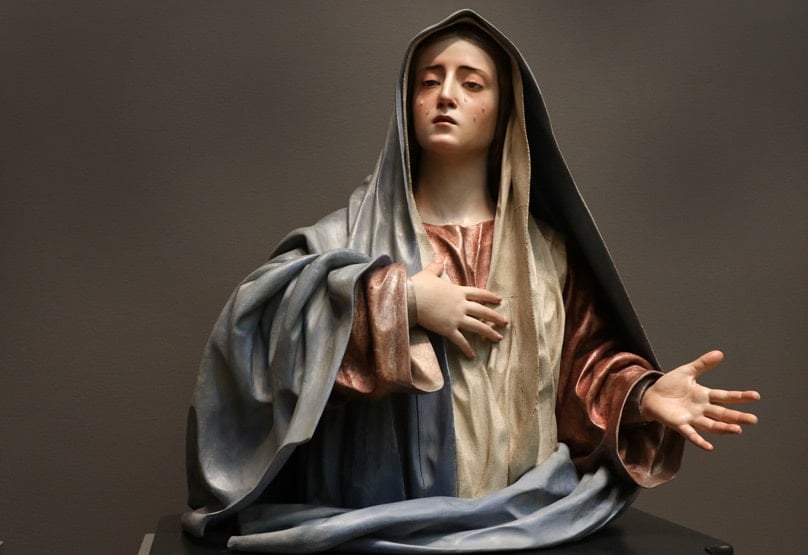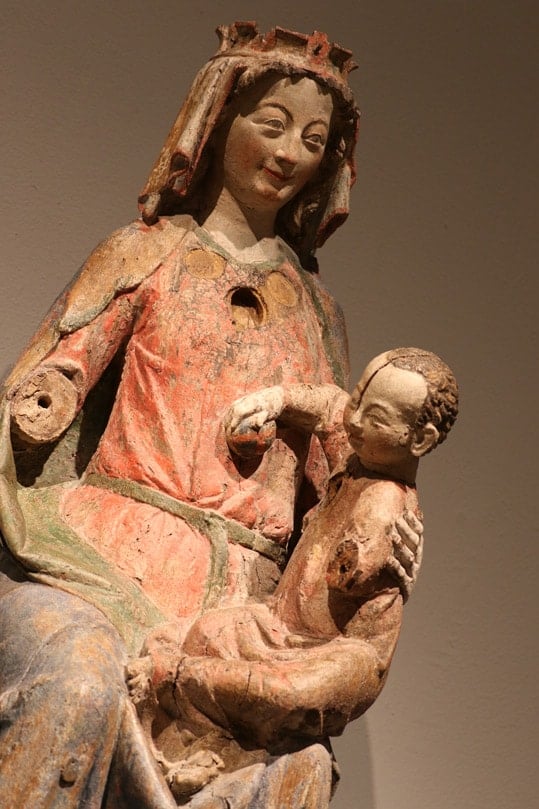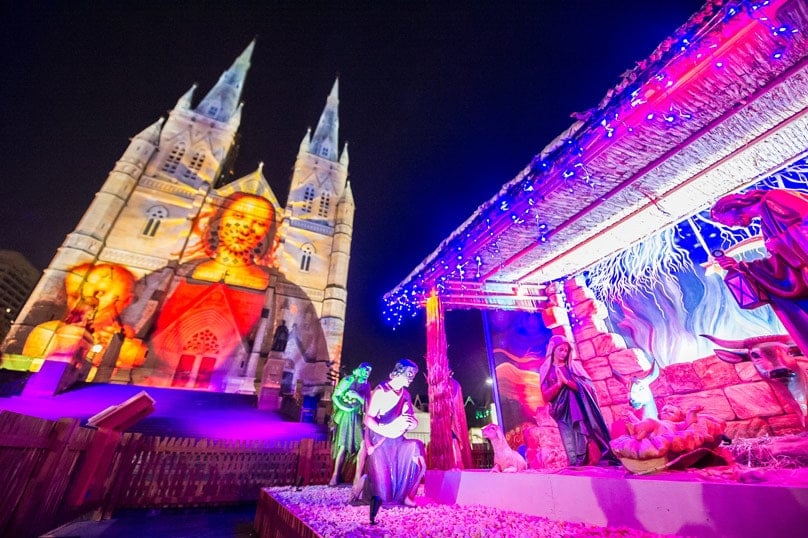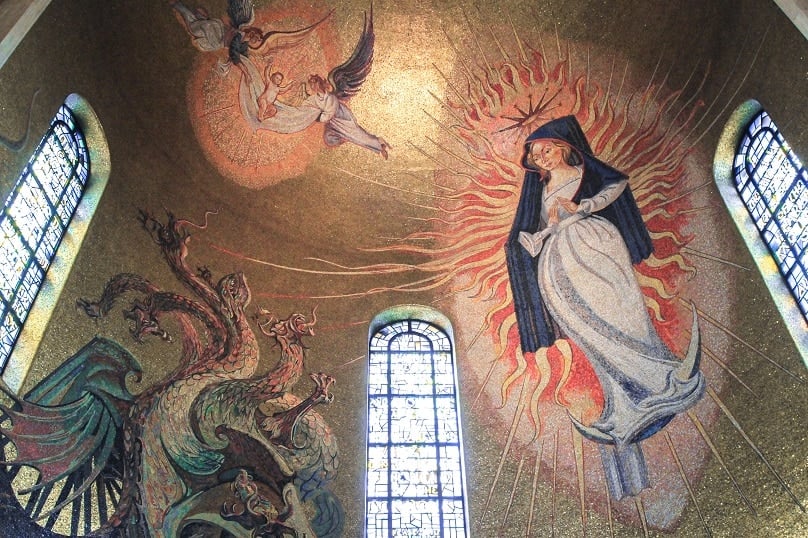
“Yikes! Is this true?” The email landed in my mailbox with resounding virtual thud, asking for help for a confused Catholic baffled by one of those Mysteries of the Bible shows on cable TV.
I have a private theory that the people who write the Mysteries of the Bible programs used to write for Scooby Doo, Where are You! and just brought a winning formula to their new gig (“Why that was no supernatural occurrence! It was just old Mr Higgins in a bedsheet! And he’d have gotten away with it if not for those meddling kids!” just morphed into “Why, the Israelites didn’t cross the sea because of a miraculous deliverance by God! It was just low tide!” and “Why, Jesus didn’t miraculous multiply loaves and fishes! People were just so inspired by Jesus’ warm fuzziness that they all shared their lunches! And the biblical authors would have gotten away with it if not for those meddling Mysteries of the Bible producers!”)
It was heading on toward Christmas and the show my friend saw had turned from the “explanations” listed above to explaining away the Virgin Birth. (Every Christmas and Easter, like clockwork, the media goes in search of “the real Jesus” or the “real Mary” and “the real story” about the birth and/or death and resurrection of Jesus.)
The scholars on the show my friend watched, eager for their fifteen minutes of fame, explained that the prophet Isaiah had not actually said, “Behold, a virgin shall conceive and bear a son, and shall call his name Immanu-el.” (Isaiah 7:14). Actually, the Hebrew says an almah or young woman shall conceive.
But centuries after the time of 8th century BC Isaiah (and roughly two centuries before Jesus) the Jews, now scattered through a Greek-speaking world, needed a translation of their own Bible since many Jews were losing their Hebrew and could not read their own sacred texts. So they made a translation call the Septuagint and translated Isaiah’s almah into the Greek word parthenos or virgin.

It was the Septuagint that the evangelist Matthew was quoting in his gospel, said the scholars, and that is why he mistakenly believed that Jesus was born of a virgin. But now, thanks to modern biblical scholarship, we have spotted the mistake and so we know that Jesus was not really born of a virgin!
My friend was understandably confused and worried. Was this all true? What does this mean for the inerrancy of Scripture? And since the Virgin Birth is a dogma of the Church, what does it mean for the infallibility of the Church? He wanted to know what I thought. What follows is what I think.
To begin with, let’s grant where the scholars are right: namely that almah or young woman is the original Hebrew word Isaiah used.
The scholars are also right that parthenos or virgin comes from the Septuagint translation and that Matthew is quoting that and not the original Hebrew in his gospel.
What they are wrong about is basically everything else, especially their conclusion.
Stop and think for a minute.
If you wanted to know about the circumstances of somebody’s birth, would you turn to the book of Isaiah for it?

Of course not. You would go to the only possible sources of such a story: to those involved and, above all, to Mom if she was available.
Where did the early Church get the story of Jesus’ birth? Not from Isaiah, but from the Blessed Virgin Mary and/or from Jesus himself who (like most of us) probably heard the story of his birth many times as he grew up. This is particularly likely since (unlike most of us) our birth was not preceded by a visitation from the Angel Gabriel and a prophecy that
He will be great, and will be called the Son of the Most High;
and the Lord God will give to him the throne of his father David,
and he will reign over the house of Jacob for ever;
and of his kingdom there will be no end. (Luke 1:32-33)
Moreover, our moms did not spend decades “pondering all these things in her heart” as Luke tells us Mary did. And above all, our moms did not conceive and bear us in virginity. All this sort of thing tends to get passed down in family lore, albeit with undoubted discretion as well during the lifetime of Jesus. It’s not the kind of thing the Holy Family would have bragged about at extended family picnics, but (as the story of Mary’s visit to Elizabeth makes clear) neither was it something kept absolutely secret either. And once the resurrection and ascension occurred, it was time for that which was whispered in private rooms to be “proclaimed from the housetops” (Luke 12:3).

After all, why is Matthew writing about Jesus at all? Not because he saw his birth, but because he saw his death and resurrection. That’s what got the attention of the early Church. It is not until after these things that the Church, now fully convinced of Jesus’ claims to deity, turns to the Blessed Virgin and says, “What can you tell us about how Jesus came into the world?” And it is from her, not the prophet Isaiah, that the Church then hears the story of the Virgin Birth.
“But Virgin Births are scientifically impossible! We know that now!” say moderns.
Well, yes. They are scientifically impossible. And guess what? They knew that then too. We are not two thousand years smarter than Joseph of Nazareth on that score. But then again, rising from the dead on the third day is scientifically impossible too. Or, more precisely, scientifically inexplicable. Because science simply measures time, space, matter and energy and tells us what they normally do.
Science cannot forbid the Creator of time, space, matter, and energy from altering his own rules any more than an art critic can tell Leonardo not to work with watercolors instead of oils. God, under carefully controlled laboratory conditions, can do whatever he likes. He’s God. And the early Church, like it or not, was utterly convinced that they met Jesus Christ alive again on the third day after his death. Believing his Virgin Birth to be incredible after that is like eating an elephant and recoiling in disbelief at the after dinner mint.
Okay, so if Matthew is not getting his knowledge of the Virgin Birth from Isaiah, then why does he bother to quote Isaiah at all?
Ah! Thereby hangs a tale. Of which more next time!
